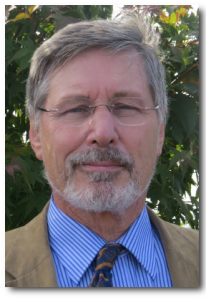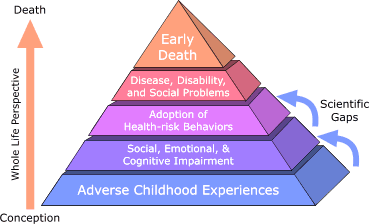 The New York Times May 22 spotlighted Dr. Bessel van der Kolk MD’s idea that to change the way we heal a traumatized mind, start with the body (as noted last week). (Van der Kolk portrait by Matthew Woodson for the Times, left.) But the Times had its own slant, some of it not cricket.
The New York Times May 22 spotlighted Dr. Bessel van der Kolk MD’s idea that to change the way we heal a traumatized mind, start with the body (as noted last week). (Van der Kolk portrait by Matthew Woodson for the Times, left.) But the Times had its own slant, some of it not cricket.
So here’s the letter I wrote to the Times about the gnarly
innuendos they also threw in — against Dr. van der Kolk.
These are innuendos against the science of how the human
organism deals with trauma, and denial that trauma is as widespread as it is, in fact.
Some 50% of Americans have insecure attachment trauma
and roughly 50% of us suffer one or more types of Adverse Childhood Experience (ACE) trauma. But the Times isn’t sounding the alarm about that.
Instead they’re damning the scientists trying to sound the alarm, with faint praise and innuendo.
I grew up in New York; I’m not impressed by the Times. Nor should their abuse of their authority go unaddressed.
————————–
Subject: J. Interlandi 5-22 Van der Kolk feature
From: Kathy Brous Date: Thursday, May 29, 2014
To: Letters@nytimes.com, “Sheila Glaser” <sfglaser@nytimes.com>
Cc: “Jeneen Interlandi” <jeneeni@yahoo.com>
Re: “A Revolutionary Approach to Treating PTSD” by Jeneen Interlandi, May 22 New York Times Magazine
Dear Editors,
I appreciate Ms. Interlandi’s allowing Dr. Bessel van der Kolk the space to explain that “to change the way we heal a traumatized mind, start with the body.” It’s especially true that standard “cognitive” treatments often don’t work, “patients are still suffering, and so are their families. We need to do better,” as van der Kolk says.
Of 208 reader comments, I only found two that didn’t hail his work; the two attacked van der Kolk for stating that “repressed memories” are possible.
But so, in effect, does the Times – and more. Which I found alarming.
“In the 1990s, van der Kolk served as an expert witness in a string of high-profile sexual-abuse cases that centered on the recovery of repressed memories, testifying that it was possible… for victims of extreme or repeated sexual trauma to suppress all memory of that trauma and then recall it years later in therapy,” Ms. Interlandi wrote.
Then, as if seamlessly, she segued into this next sentence: “In the 1980s and ‘90s, people all over the country filed scores of legal cases accusing parents, priests and day care workers of horrific sex crimes, which they claimed to have only just remembered with the help of a therapist… But as the claims grew more outlandish — alien abductions and secret satanic cults — support for the concept waned… Harvard psychologist Richard McNally called the idea of repressed memories ‘the worst catastrophe to befall the mental health field since the lobotomy ‘.”
 I loathe witch trials; I was alarmed. Is van der Kolk a butcher? So I did an extensive internet search, and found zero evidence that van der Kolk personally had anything to do with the fraudulent cases. Let alone aliens or cults.
I loathe witch trials; I was alarmed. Is van der Kolk a butcher? So I did an extensive internet search, and found zero evidence that van der Kolk personally had anything to do with the fraudulent cases. Let alone aliens or cults.
Then I realized that the Times doesn’t have a single footnote to show it either. Is it all innuendo?
In my search, the worst van der Kolk’s worst critics could do, was to condemn him for repeating his clinical findings that repressed memories are possible. Period. [1] Yes it’s horrible that there was a witch hunt in the 1980s-90s. It’s horrible that others distorted van der Kolk’s findings and as a result, innocent people were jailed.
But it’s just as much of a distortion to accuse him of doing the witch hunting. Is Edison responsible for everything ever done under electric lights?
The Times doesn’t report any of that.
The Times also doesn’t report this: since Richard McNally, Elizabeth Loftus and others flatly declared repressed memory to be impossible in 2002-2005, several peer reviewers have concluded that they were (flatly) wrong. The American Psychological Association website now states that while most traumas are remembered, “repressed memories” are also often reported and quite possible — and far more research is needed before anything can be dismissed. [2]
I appreciate Ms. Interlandi for covering trauma and van der Kolk, and at such length. I appreciate she seeks balance. But was that balance?
She also describes a follow-up visit she made to the Iraq vet with PTSD, whom van der Kolk treated using group therapy in the article’s opening passages. She concludes the article by reporting that the vet has no idea whether it worked or not. This leaves readers thinking: “Hmm. Van der Kolk? His stuff doesn’t work.”
Without any review of what van der Kolk’s actual recovery rate might be? Why the innuendo? Where are the facts?
The Times also doesn’t report another key fact: according to Veterans Administration chief PTSD authority Dr. Matthew Friedman and several other studies, only 10-15% of veterans who experience war trauma incidents, come down with enduring full-blown PTSD. The rest heal within a relatively finite period. [3]
 The problem is the “invisible elephant” on the national mental health lawn: child trauma.
The problem is the “invisible elephant” on the national mental health lawn: child trauma.
Child trauma is a topic Dr. van der Kolk discusses constantly, but which the article only mentions in passing, by way of asking whether it can be remembered or not. Yet the ACE Study has already shown that roughly 50% of us suffer one or more types of childhood trauma.
Those 10-15% who get PTSD? They are almost always survivors of some unrelated childhood trauma, which damages memory during brain development, such that yesterday’s events continue to be experienced as today’s events. That means the Iraq vet in the article, who has enduring PTSD, very likely had childhood trauma, a huge topic in itself. [4]
To address child trauma — and what it would really take to fully heal this vet — would require giving Dr. van der Kolk the space for a whole other article. Which more than 200 of your readers would welcome.
Unless there’s a reason why not?
Unless we instead might have an article by those who allege that van der Kolk promoted the fraudulent cases — if, that is, they can show proof? And please: proof means footnotes and documentation.
Kathy Brous, Dana Point, CA
Footnotes (provided in letter to the Times)
FN1 The False Memory Syndrome Foundation (FMSF) (www.fmsfonline.org), the premier site exposing fraudulent accusations based upon false trauma memory, has dozens of references to Bessel van der Kolk testifying on the science. Yet it never mentions that he supported any particular therapy, therapists, false memories or particular cases at all. It certainly never connects him to anything to do with aliens or satanic cults.
FN2 The American Psychological Association’s 2007 “Working Group on Investigation of Memories of Child Abuse” presented findings mirroring those of the other professional organizations. The Working Group made five key conclusions:
“1. Controversies regarding adult recollections should not be allowed to obscure the fact that child sexual abuse is a complex and pervasive problem in America that has historically gone unacknowledged;
“2. Most people sexually abused as children remember all or part of what happened to them;
“3. It is possible for memories of abuse that have been forgotten for a long time to be remembered;
“4. It is also possible to construct convincing pseudo-memories for events that never occurred;
“5. There are gaps in our knowledge about the processes that lead to accurate and inaccurate recollections of childhood abuse.”
– Source: Colangelo JJ, “Recovered memory debate revisited: practice implications for mental health counselors, PRACTICE, Journal of Mental Health Counseling, 2007
The American Psychological Association’s website www.apa.org/topics/trauma/memories.aspx?item=1 currently adds:
“Q: Can a memory be forgotten and then remembered? Can a ‘memory’ be suggested and then remembered as true?
“A: Experts in the field of memory and trauma can provide some answers, but clearly more study and research are needed. What we do know is that both memory researchers and clinicians who work with trauma victims agree that both phenomena occur.
“However, experienced clinical psychologists state that the phenomenon of a recovered memory is rare (e.g., one experienced practitioner reported having a recovered memory arise only once in 20 years of practice). Also, although laboratory studies have shown that memory is often inaccurate and can be influenced by outside factors, memory research usually takes place either in a laboratory or everyday setting. For ethical reasons, researchers do not subject people to a traumatic event to test their memory. Because it has not been directly studied, we can not know whether a memory of a traumatic event is encoded and stored differently from a nontraumatic event.
“Some clinicians theorize that children understand and respond to trauma differently from adults. Some furthermore believe that childhood trauma may lead to problems in memory storage and retrieval. These clinicians believe that dissociation is a likely explanation for a memory that was forgotten and later recalled. Dissociation means that a memory is not actually lost, but is for some time unavailable for retrieval. That is, it’s in memory storage, but cannot for some period of time actually be recalled. Some clinicians believe that severe forms of child sexual abuse are especially conducive to negative disturbances of memory such as dissociation or delayed memory. Many clinicians who work with trauma victims believe that this dissociation is a person’s way of sheltering him/herself from the pain of the memory.
“Many researchers argue, however, that there is little or no empirical support for such a theory.”
FN3 “We know that if a hundred people are exposed to a traumatic episode…that most of them will not develop PTSD… The pre-traumatic risk factors are things you really can’t do anything about: whether your parents were well adjusted or had a mental health history, whether you were previously exposed to a disruptive household – your father was an alcoholic or that you were very poor and there was a lot of deprivation, or there was physical or sexual abuse during your childhood.”
– Source: Dr. Matthew Friedman, “Psychological First Aid: Diagnosis and Prevention of PTSD,” June 8, 2011 webcast, National Institute for the Clinical Application of Behavioral Medicine, www.nicabm.com
Dr. Matthew Friedman recently retired from the position of Executive Director and now serves as Senior Advisor at the U. S. Dept. of Veterans Affairs National Center for PTSD. Source: www.ptsd.va.gov/professional/continuing_ed/presenters/matthew-j-fri… [Dated March, 2014]
FN4 “The purpose of this study was to compare rates of childhood abuse in Vietnam veterans with and without combat-related posttraumatic stress disorder (PTSD).
“Results: Vietnam veterans with PTSD had higher rates of childhood physical abuse than Vietnam veterans without PTSD (26% versus 7%). The association between childhood abuse and PTSD persisted after controlling for the difference in level of combat exposure between the two groups.
“Conclusions:These findings suggest that patients seeking treatment for combat-related PTSD have higher rates of childhood physical abuse than combat veterans without PTSD. Childhood physical abuse may be an antecedent to the development of combat-related PTSD in Vietnam combat veterans.”
– Source: Bremner JD, Southwick SM, Johnson DR, Yehuda R, Charney DS, “Childhood physical abuse and combat-related posttraumatic stress disorder in Vietnam veterans,”.Am J Psychiatry. 1993 Feb; 150(2):235-9. http://www.ncbi.nlm.nih.gov/pubmed/8422073
—————————–
Kathy’s news blogs expand on her book “DON’T TRY THIS ALONE: The Silent Epidemic of Attachment Disorder—How I accidentally regressed myself back to infancy and healed it all.” Watch for the continuing series each Friday, as she explores her journey of recovery by learning the hard way about Attachment Disorder in adults, adult Attachment Theory, and the Adult Attachment Interview.
![]()



Thank you for writing this well-researched and thought-out letter.
When I started reading the Times article, I was dismayed at the lead-in describing a therapy role-playing exercise and its failure. I was expecting a serious discussion of Van der Kolk’s work.
Having been mis-diagnosed with BPD after years of seeking help with my story of being chronically terrorized as a child with affluent, critical, distant and rejecting parents, I found a video of a talk he gave to an NEABPD conference. At 49, I had just come down with severe allergies and anaphylaxis episodes.
I then found the original paper “The Body Keeps The Score” as I continued to (unsuccessfully) seek therapy and validation of my experience. I am now (unsuccessfully) trying to have the BPD diagnosis revised, as I clearly have C-PTSD and a life that reflects its effects.
Seeing the Times almost mocking Van Der Kolk and pinning him with responsibility for the repressed memory issue was so invalidating to the way his work and perspective marked a turning point for me.
My allergies are directly related to my experience of stress as a child and subsequently, throughout my life. My trauma began at birth and went on from there, so obviously I have no memory of that stage and I do not claim to.
My family denies my later memories, which I have repeated all my life. They were never “recovered.” What a surprise that perpetrators use the currently fashionable notion that most memory is unreliable to protect themselves. Where my problems were once only psychological, the physical effects are now there too. Yet The Times chooses to make Van Der Kolk look like a flake.
Dear Wendy,
Please do not let the New York Slimes make you feel invalidated — or feel anything else! I grew up in NY and we are used to them slanting to their own dysfunction. They have a self-hate complex so act like tin pot dictators. When Edison announced the electric light, they damned him as they did van der Kolk: with innuendo.
The ACE Study has now scientifically documented that infant and child trauma, remembered or not, is the major cause of adult-onset physical disease, exactly as you described: http://attachmentdisorderhealing.com/the-greatest-study-never-told/
You may not need a new diagnosis, might be wasted time/money.
Just ignore it, and get a really good attachment therapist to help you do body work and you can heal. Try these links: http://attachmentdisorderhealing.com/featured-topics/healing-body-work/ and http://attachmentdisorderhealing.com/resources/attachment-therapists-directory/
You can get plenty of validation on my website here, and please feel welcome to join ACEsConnection.com, our on-line community of “trauma-informed” humans.
Warmly, Kathy
Love what you wrote! TY for putting that out there. Perpetrators will not come clean. I was just not smart enough, etc. That’s how they deny their part. Put it on the victim.
Kathy, I’d be surprised if the folks at “Lies Of Our (NY) Times” hadn’t caught the the NY Times’ swipe at van der Kolk, since they [and FAIR] monitor the NY Times. And since the Guardian and Reuters have also been covering the “row” (rift) between British Psychologists and British Psychiatrists…NY resident Greg Palast writes for the Guardian, BBC, and besides journalism, he does “forensic economics”… I’ve heard other folks recently raising concern about the NYTimes. Fred Lerner, DLS (Information Scientist and author) also recently retired from the NCPTSD about two months before Matthew Friedman, M.D. did.
Pingback: My theory: Why quality RAD treatment is hard to find
While the coverage of van der Kolk’s work looked good on the surface, the innuendos throughout left me feeling that it was more of an attack.
It would have made much more sense for the article to go further and talk about why the way he works with people actually works, such as follow up with Bruce Perry’s work.
Only when people understand how the brain gets stuck and that the only way to that part of the brain is through the body, will they understand that healing and recovery is a real possibility.
Amen when it comes to healing! Dr. Bruce Perry, MD, Dr. Dan Siegel, MD, Stephen Porges and show that trauma shuts down higher brain functions like cognition. Instead, body parts and the primitive brain stem get “stuck” repeating bodily feelings from the past trauma events. Without higher brain functions, we can’t put the past trauma events into long-term memory. Instead, our body is reliving the past, now.
Siegel also says trauma memories can get so fragmented that we can’t gather them into a working picture at all; they sit scattered around the nervous system and body.
Perry says “rhythmic regulation” by body movement can get the brain stem to calm long enough to let the higher brain functions come on line. See http://attachmentdisorderhealing.com/developmental-trauma-3/
The Times ignores all this and repeats Richard McNally’s 2005 insistence that all trauma is remembered — though many said at the time that his work lacked proof. Lisa Najavits called McNally “disappointing… landing too forcefully on one side…by no means an end to the debate.” See http://www.seekingsafety.org/7-11-03%20arts/4-04%20fin%20SCAND%20VERS-jnmd%20rev%20mcnally.pdf
Excellent. Glad you wrote a defense. Have you heard back from them??
No, nothing yet; frankly I didn’t expect anything.
They’re like King George or Marie Antoinette… They think they are Royalty at The Most Important Newspaper In The World – so they can just print anything they like, and the rest of us peons must cower.
Like I said, I grew up in New York and I’m not impressed.
When Thomas Edison invented the light bulb, they literally wrote an editorial denouncing him as a charlatan. I don’t have a copy of it anymore but maybe you can find it on the internet?
Thank you, Kathy, you speak for many of us. Did you see the “60 Minutes” show that Sunday? Most of my friends in the field do not think Cognitive is the way to go. Some do. I have a hunch it is because they are afraid pf their own trauma and need to be in control. As I am sure you know it an be messy when you are back in that pain and terror. Love, Barbara
Dear Barbara,
I’m grateful for your work on somatic healing and attachment trauma at Star Foundation (www.starfound.org). A transcript of the May 25 “60 Minutes” show on PTSD is at http://www.cbsnews.com/news/the-war-within-treating-ptsd-2/ Personally I was horrified by the VA forcing vets to do cognitive talk therapy, retelling their trauma over and over.
Not only Dr. van der Kolk but also somatic therapy experts Dr. Peter A. Levine, Dr. Pat Ogden, Belleruth Naparstek, Janina Fisher, and others with extensive vet experience warn that “just talk” about trauma only makes victims relive the trauma. So it gets worse.
That’s why I took Dr. Levine’s somatic book “Healing Trauma to my therapist; he’s an attachment expert, but into cognitive talk therapy. I said: “Sorry you’re not familiar with somatic work, but I got traumatized before I was 3 and had a thinking brain, so the trauma’s baked down into my body parts, where talk and cognition can’t get at it. This book is what we’re going to do.” Our results were spectacular. Levine’s results with vets are also spectacular.